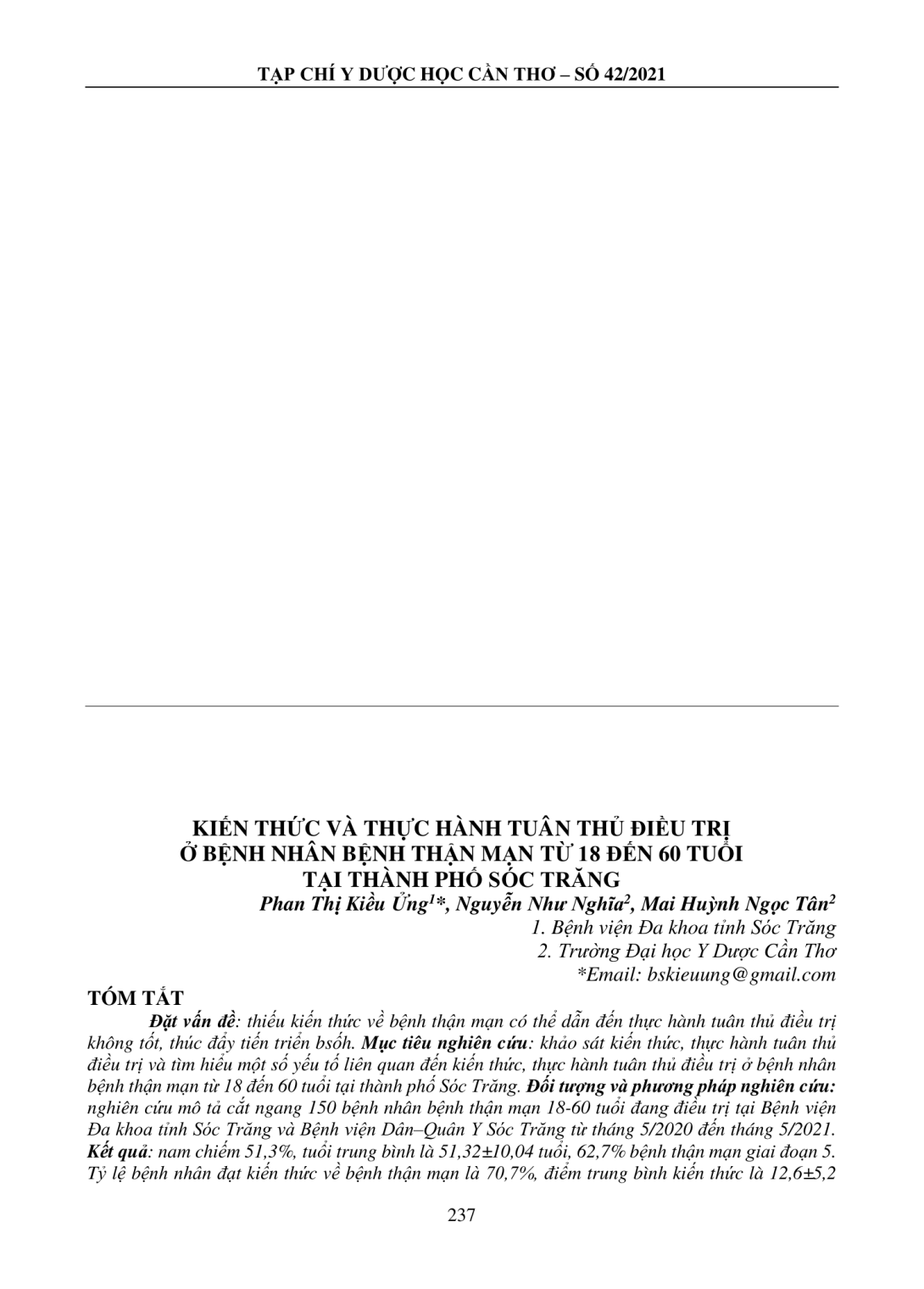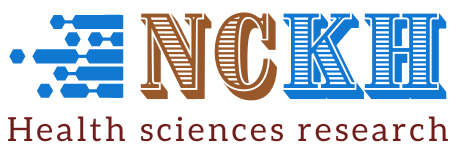
Thiếu kiến thức về bệnh thận mạn có thể dẫn đến thực hành tuân thủ điều trị không tốt, thúc đẩy tiến triển bsốh. Mục tiêu nghiên cứu: khảo sát kiến thức, thực hành tuân thủ điều trị và tìm hiểu một số yếu tố liên quan đến kiến thức, thực hành tuân thủ điều trị ở bệnh nhân bệnh thận mạn từ 18 đến 60 tuổi tại thành phố Sóc Trăng. Đối tượng và phương pháp nghiên cứu: nghiên cứu mô tả cắt ngang 150 bệnh nhân bệnh thận mạn 18-60 tuổi đang điều trị tại Bệnh viện Đa khoa tỉnh Sóc Trăng và Bệnh viện Dân–Quân Y Sóc Trăng từ tháng 5/2020 đến tháng 5/2021. Kết quả: nam chiếm 51,3%, tuổi trung bình là 51,32±10,04 tuổi, 62,7% bệnh thận mạn giai đoạn 5. Tỷ lệ bệnh nhân đạt kiến thức về bệnh thận mạn là 70,7%, điểm trung bình kiến thức là 12,6±5,2 điểm. Có 56% bệnh nhân thực hành đạt với điểm trung bình là 13,2±4,9 điểm. Có mối tương quan thuận mức độ chặt giữa kiến thức và thực hành tuân thủ điều trị bệnh thận mạn (r=0,71, p=0,001), tương quan nghịch mức độ vừa giữa mức lọc cầu thận và điểm kiến thức (r = -0,42, p=0,001). Có mối liên quan giữa kiến thức và dân tộc, trình độ học vấn và điều kiện kinh tế. Các yếu tố liên quan đến thực hành đạt gồm: giới nữ, dân tộc Kinh, Hoa và học vấn từ trung học phổ thông trở lên (p<0,05). Kết luận: kiến thức có tương quan chặt với thực hành, cần giáo dục để bệnh nhân thực hành điều trị tốt bệnh thận mạn
Lack of knowledge about chronic kidney disease (CKD) can affect poor treatment practices and promote disease progression. Objectives: to identify knowledge, practices adherence to treatment and to find out some factors related to knowledge and practices adherence to treatment in chronic kidney disease patients from 18 to 60 years old in Soc Trang city. Materials and methods: A cross-sectional descriptive study was conducted on 150 chronic kidney disease patients from 18 to 60 years old being treated at Soc Trang General Hospital and Soc Trang People and Military Hospital from May 2020 to May 2021. Results: men were 51.3%, the mean age was 51.32±10.04, stage 5 CKD were 62.7%. The percentage of patients who had good knowledge of CKD were 70.7%, mean knowledge score was 12.6±5.2. There were 56% of patients with good practices, mean practice score was 13.2±4.9. There was a strong positive correlation between knowledge and practices adherence to treatment (r=0.71, p=0.001), and a moderate inverse correlation between eGFR and knowledge score (r= -0.42, p=0.001). There was an association between knowledge and ethnicity, education level and economic conditions. Factors relating to good practices included: female gender, Kinh and Chinese ethnicity and education from high school or higher (p<0.05). Conclusion: knowledge was significantly correlated with practices, it is necessary to educate patients for good treatment of chronic kidney disease
- Đăng nhập để gửi ý kiến
